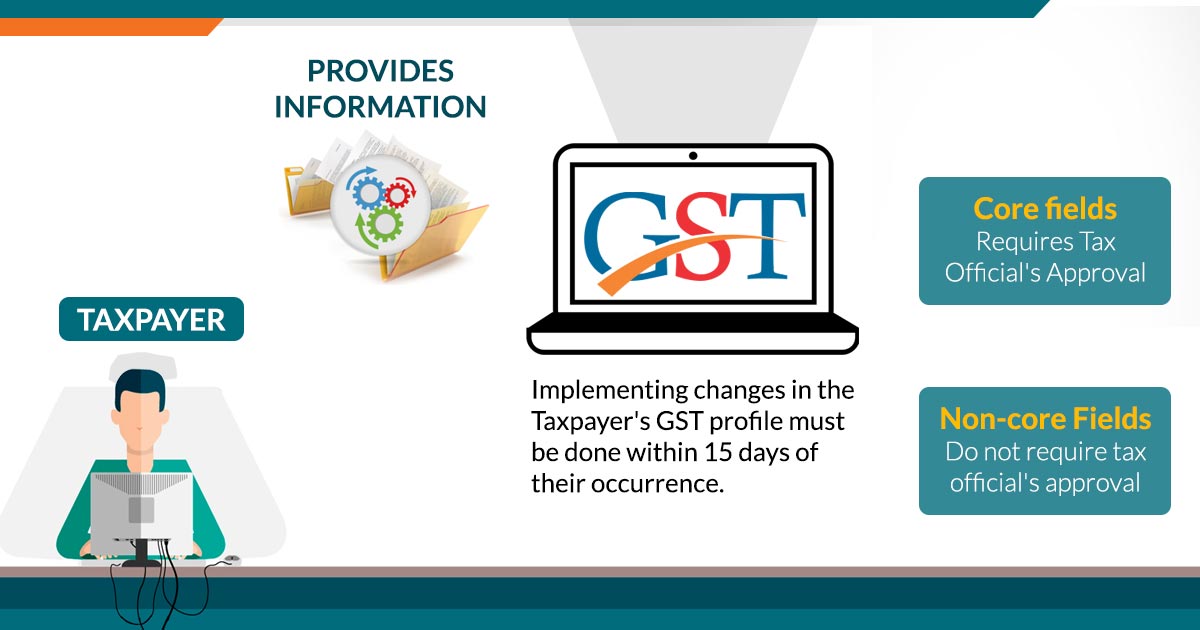Streamlining Your Singapore GST Registration: A Comprehensive Approach
Streamlining Your Singapore GST Registration: A Comprehensive Approach
Blog Article
Understanding GST Enrollment: Essential Steps to Guarantee Regulative Compliance and Service Development
Browsing the realm of Item and Services Tax Obligation (GST) enrollment can be a critical action for services aiming to keep compliance and foster development. Beyond simply ticking off the regulative checkboxes, mastering GST enrollment opens up a realm of opportunities for businesses to purposefully leverage this tax obligation framework to thrust their growth.
Understanding GST Fundamentals
Recognizing the basics of Product and Provider Tax (GST) is vital for businesses to navigate the complexities of tax obligation conformity and economic management successfully. GST is a value-added tax obligation levied on the supply of products and solutions in India, intending to create a unified tax system across the nation. Singapore GST Registration. Under GST, organizations need to register and acquire a special GSTIN (Item and Services Tax Identification Number) to be compliant with the legislation

Preparing Necessary Files
To make sure compliance with GST enrollment needs, businesses must collect and organize the needed papers for the application process successfully. The key files commonly required for GST enrollment consist of evidence of organization enrollment or unification, frying pan card of the address, company and identity evidence of marketers, photos, bank statements, and proof of address of the area of organization. In addition, services may need to provide information of licensed notaries, company activities, and turn over. It is vital to make sure that all files are accurate, approximately day, and meet the requirements defined by the tax authorities to avoid hold-ups or beings rejected in the registration procedure.
Organizing these files in an organized manner can enhance the application process and demonstrate business's commitment to regulative conformity. Companies must maintain both electronic and physical copies of these files for very easy access and recommendation. By preparing the essential documents vigilantly, organizations can expedite their GST registration process and emphasis on their core procedures with the assurance of regulative conformity.
Online Enrollment Process
Begin the GST enrollment procedure by browsing to the official online portal designated for company registration. When the account is set up, you can proceed with filling up out the GST registration application form by going into the essential company information, including service turnover, type, and address details.

Conformity and Coverage Obligations
Upon effective registration on the GSTN portal and conclusion of the required documentation, organizations should follow rigid compliance and reporting commitments to guarantee regulatory adherence and functional transparency. Conformity requirements under GST required timely and precise filing of different returns, such as GSTR-1 for outward products, GSTR-3B for monthly recap returns, and annual returns like GSTR-9. Furthermore, businesses need to integrate their sales and purchase information through GSTR-2A and GSTR-2B to insurance claim input tax debts properly.
Keeping proper documents of billings, accounting files, and various other pertinent data is vital for GST compliance. Routine audits and analyses by tax authorities require services to have meticulous paperwork and reporting systems in area. Any discrepancies or non-compliance can cause fines, fines, and even suspension of GST enrollment.
To simplify compliance processes, companies can utilize GST conformity software that automates return filing, reconciliation, and conformity monitoring. here are the findings Remaining upgraded with regulatory changes and seeking expert recommendations when required can better boost conformity initiatives and ensure smooth operations within the GST framework.
Leveraging GST for Service Growth
Companies can tactically utilize the GST framework to drive sustainable development and boost functional effectiveness (Singapore GST Registration). Leveraging GST for company growth involves even more than simply compliance; it presents an opportunity for firms to simplify procedures and maximize their financial procedures. One essential benefit of GST is the input tax credit score system, which permits companies to assert credit scores for tax obligations paid on inputs. By properly managing input tax obligation credit scores, companies can minimize their overall tax obligation obligation and enhance cash money flow. Additionally, GST promotes openness and accountability in the tax system, which can help companies develop count on with companions and clients.
In addition, GST enrollment can additionally open up brand-new markets for organizations. In significance, leveraging GST for organization development entails critical preparation, reliable conformity, and a progressive technique to monetary administration.
Final Thought
In final thought, grasping GST registration is important for guaranteeing regulative compliance and facilitating business development. By recognizing the essentials of GST, preparing needed papers, completing the online enrollment procedure, and satisfying compliance and reporting obligations, organizations can utilize GST to their advantage. It is important for organizations to stick to the guidelines and utilize GST as a tool for increasing their operations and staying affordable out there.
Navigating the realm of Item and Solutions Tax (GST) registration can be a crucial action for companies intending to maintain conformity and foster development. The essential papers generally required for GST enrollment include evidence of organization registration or consolidation, Frying pan card of the organization, address and identity evidence of promoters, pictures, bank declarations, and proof of address of the area of company.Start the GST registration process by browsing to the official online site assigned for organization registration. As soon as the account is set up, you can continue with filling out the GST enrollment application form by going into the essential company details, including service type, address, and turn over details.
By recognizing the basics of GST, preparing essential documents, finishing the online enrollment procedure, and fulfilling compliance and reporting commitments, businesses can take advantage of GST to their benefit.
Report this page